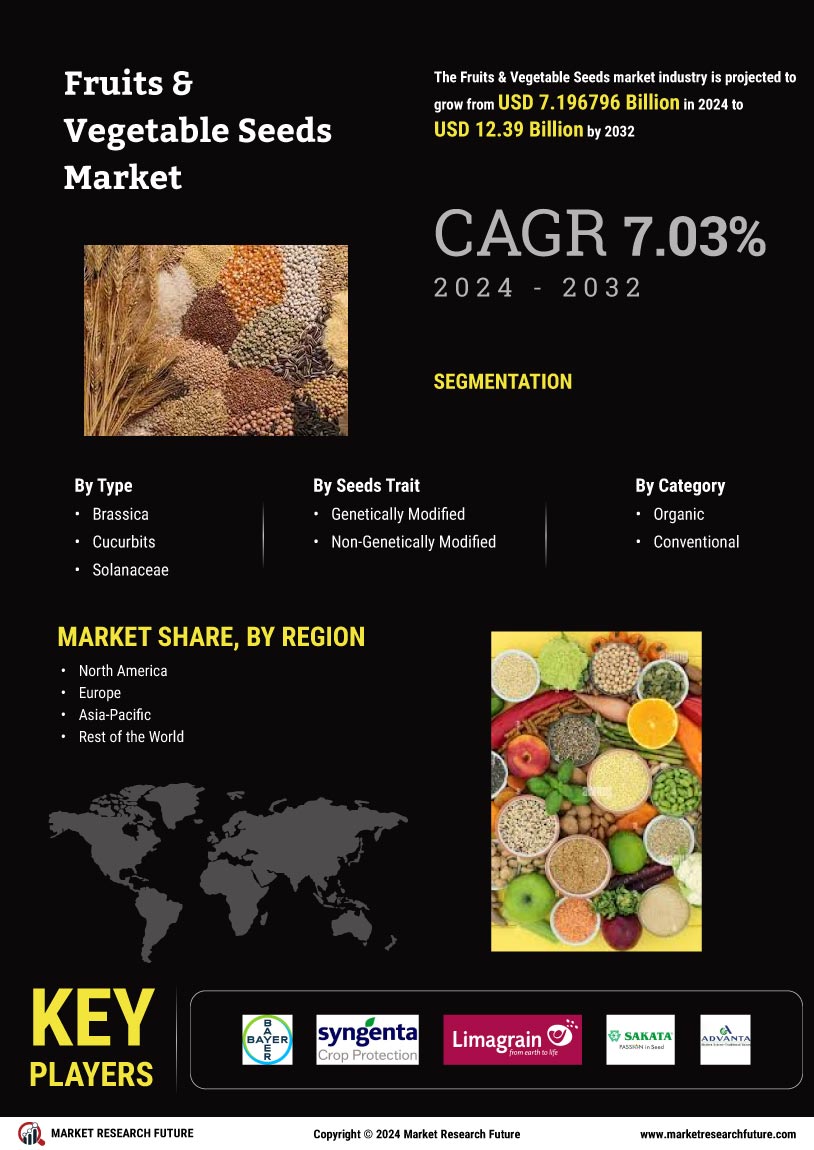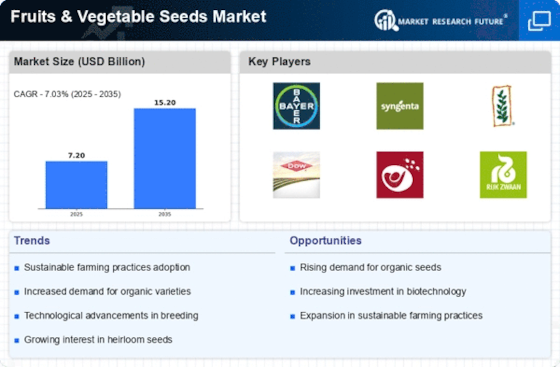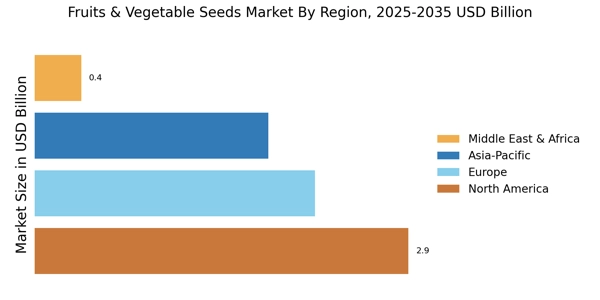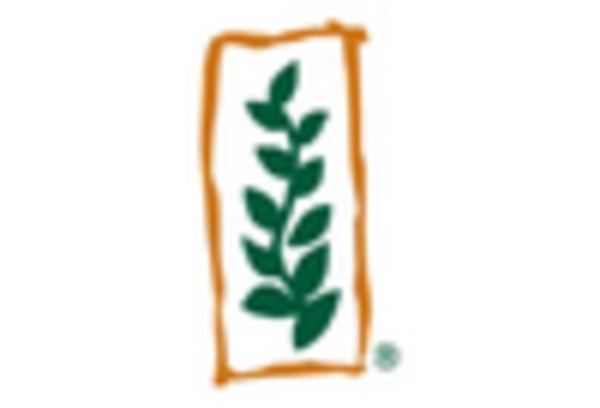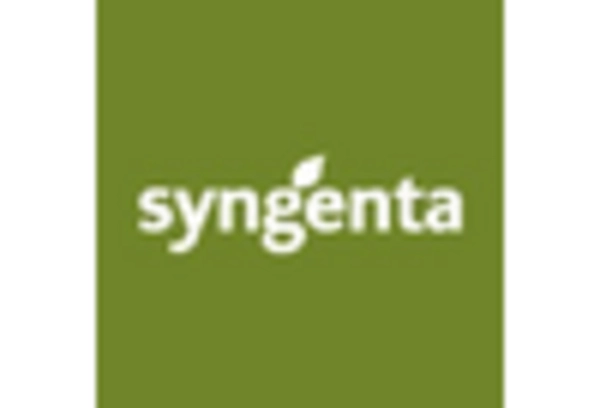Research Methodology on Fruit & Vegetable Seed Market
1. Introduction
The high demand for consumable fruits and vegetables, support from national and international organizations, government support, and growing commercial agricultural production all around the world are some of the key factors driving the market growth. Increasing demand for organic and natural vegetables is also driving the seeds market growth.
Moreover, the growing trend for consumption of hybrid and modified seeds due to their superior quality, better yield, drought and pest-tolerant properties is further influencing market growth. However, lack of awareness, high seed costs and cross-contamination concerns are some of the major factors restraining the growth of the global seed market.
The global fruit and vegetable seed market is segmented on the basis of type, application, and region. Based on type, the market is segmented into vegetables, fruit, and flowers. The application segment is divided into commercial, home, and field. Moreover, by region, the market is analyzed across North America, Europe, Asia-Pacific, and Latin America, Middle East & Africa.
2. Research Objectives
The aim of this research is to study the dynamics of the global fruit and vegetable seed market and provide a detailed analysis of the drivers and restraints that are influencing the market growth. Furthermore, this research also seeks to identify the regional market trends, competitive landscape, major companies, and competitive strategies.
3. Research Methodology
A systematic research methodology is adopted to analyze the global fruit and vegetable seed market. This methodology entails the use of both primary and secondary data sources obtained from various public securities available in the market. The critically analyzed data obtained through primary research techniques helps to understand the market in depth and in turn frames that segment the market to correct the industry trends.
The primary research is carried out with the help of expert assessment entities, validated by multiple strategic interviews and validations from the past and existing market players in the fruit and vegetable seed market. Interviews include primary interviews (with industry experts, market leaders, opinion makers, and market players) and secondary interviews (with industry, and market analysts) in order to obtain practical insight into the market and the impacting factors on it.
The information provided by primary resources has been further validated for analyzing and understanding the precise value of the market, and the related information has been derived through interviews from both industry experts and key opinion leaders.
The secondary research has been undertaken by scrutinizing the annual reports, technology journals, white papers relevant to the seed market, news portals, and press releases of the industry.
4. Qualitative Research
The qualitative research has been undertaken with the purpose of understanding the intricate details that contribute to the market segmentation and customer profiles of the global fruit and vegetable seed market. Data collected from industry experts, opinion makers, market players, and industry proprietors has assisted in refining and validating the collected data.
Qualitative research employs several primary research methods such as questionnaires, interviews, discussions, and classifications to provide accurate data. This method plays an important role in obtaining historic and current trends in the market. Additionally, qualitative research helps in understanding consumer attitudes and preferences, which further assists in the stratification of gathered information as per market trends, followed by the evaluation of the market performance in terms of growth and other aspects such as industry, regions, competition, mergers and acquisitions, and the product developments.
4.1 Quantitative Research
Quantitative research is conducted to obtain precise numerical values to understand the analysis of the actual market performance in the global fruit and vegetable seed market. Segmental market size and historical data are used to understand the detailed market analysis.
The market size is estimated by considering the projection of past experiences and growth trends. The compound annual growth rate (CAGR) of the market is calculated with the usage of the past few years’ market size. Moreover, the dominant revenue-generating regions are aptly identified and analyzed with the support of the segmental market size of different countries.
An in-depth analysis of the market’s growth drivers and restraints is supported by several analytical methods such as bottom-up approach, top-down approach, factor analysis, time-series analysis and demand side and supply side data triangulation. Along with the quantitative analysis, we are utilizing the market study to gain an understanding of market attractiveness, trends, and their potential impact.
Various government initiatives are also looked upon such as patents, investments, expansions, research and development activities, joint ventures, etc., to understand the further growth impetus of the global fruit and vegetable seed market.
4.2. Research Components
In order to better understand the global fruit and seed market, several research components have been used such as secondary research and primary research.
4.3 Secondary Research
A systematic approach towards secondary research was undertaken to obtain vital information about the global fruit and vegetable seeds market. Secondary research includes reliable sources like paid and unpaid databases and websites such as Factiva, Hoovers, Bloomberg, and various annual reports of key players. A streamlined and effective approach towards secondary research has enabled us to gain a critical understanding of the market and confirm the accuracy of the primary data collection.
Secondary research helps in the verification of the trends derived from primary research. It helps to identify a range of industry influences, market dynamics, and growth trends that need to be studied for a better understanding of the market. Serial analysis has been conducted to obtain the data which can be represented in tabular and graphical form.
4.4. Primary Research
The primary research is carried out in order to gain deep insights into the global fruit and vegetable seed market. The primary research performed is qualitative in nature and is conducted mainly through interviews with regional opinion makers, market players, and industry experts. Expert opinion is necessary for providing precise and veritable data, analysis and interpretation of market behaviour.
The primary research generally covers some of the key aspects like market sizing, target customer identification, market opportunity assessment, market dynamics, competitive benchmarking, market segmentation, demand forecasting, customer strategies, and other related topics like trends and drivers for the market.
4.5 Data Triangulation
The usage of more than one data collection technique helps in verifying the collected data's accuracy and consistency. The arguments posed by various entities with diverse opinions help in validating the collected information from multiple sources and understanding the intrinsic relationship of the data.
The market size estimation involved both primary and secondary research sources. The secondary data includes websites, reports, and published data, whereas primary research mainly involves interviews with respondents and industry experts.
The triangulation process helps to better understand the market and its conditions. The usage of an amalgamation of qualitative and quantitative data provides deeper insights into the market. The broad usage of the data triangulation technique has enabled us to understand various aspects related to the market such as customer needs, preferences, suppliers’ opinions, and regions that are more profitable to the global fruit and vegetable seed market.
4.6. Sample Size Determination
The sampling size for the global fruit and vegetable seed market was determined to gain an accurate portrait of the market. A sample of 30 companies that are leaders in the market was researched and interviewed in this market. Further, the sample size was determined on the basis of the objectives, research design, type of analysis, and population of all the research studies conducted.
4.7. Data Collection Process
The data was collected from various reliable sources such as books, magazines, journals, published articles, and other online sources. The data was gathered from secondary sources such as government documents, magazines, press releases, directories, annual and financial reports of the market, and other online sources.
The primary sources of data collection were interviews of the key opinion leaders and industry experts from the entire value chain of the global fruit and vegetable seed market. These experts were consulted to understand the quality and reliability of the data collection.
5. Findings
The global fruit and vegetable seed market is estimated to reach its all-time high revenue figure by 2030. The high demand for consumable fruits and vegetables, support from national and international organizations, government support, and growing commercial agricultural production all around the world are some of the key factors driving the market growth. Increasing demand for organic and natural vegetables is also driving the seeds market growth.
Moreover, the growing trend for consumption of hybrid and modified seeds due to their superior quality, better yield, drought and pest-tolerant properties is further influencing market growth. However, lack of awareness, high seed costs and cross-contamination concerns are some of the major factors restraining the growth of the global seed market.
